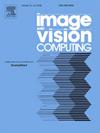在双曲空间中学习弱监督视听暴力检测
IF 4.2
3区 计算机科学
Q2 COMPUTER SCIENCE, ARTIFICIAL INTELLIGENCE
引用次数: 0
摘要
近年来,弱监督视听暴力检测任务受到了广泛关注。这项任务的目标是根据视频级标签识别多模态数据中的暴力片段。尽管在这一领域取得了进展,但由于特征空间的限制,之前研究中使用的传统欧氏神经网络在捕捉高分辨表征时遇到了困难。为了克服这一问题,我们提出了 HyperVD,这是一种在双曲空间中学习片段嵌入以提高模型区分度的新型框架。我们贡献了两个全双曲图卷积网络分支,它们可以挖掘双曲空间中片段之间的特征相似性和时间关系。通过学习双曲空间中的片段表示,该框架可以有效地学习暴力片段与正常片段之间的语义差异。在 XD-Violence 基准上进行的大量实验表明,我们的方法实现了 85.67% 的 AP,大大超过了最先进的方法。本文章由计算机程序翻译,如有差异,请以英文原文为准。
Learning weakly supervised audio-visual violence detection in hyperbolic space
In recent years, the task of weakly supervised audio-visual violence detection has gained considerable attention. The goal of this task is to identify violent segments within multimodal data based on video-level labels. Despite advances in this field, traditional Euclidean neural networks, which have been used in prior research, encounter difficulties in capturing highly discriminative representations due to limitations of the feature space. To overcome this, we propose HyperVD, a novel framework that learns snippet embeddings in hyperbolic space to improve model discrimination. We contribute two branches of fully hyperbolic graph convolutional networks that excavate feature similarities and temporal relationships among snippets in hyperbolic space. By learning snippet representations in this space, the framework effectively learns semantic discrepancies between violent snippets and normal ones. Extensive experiments on the XD-Violence benchmark demonstrate that our method achieves 85.67% AP, outperforming the state-of-the-art methods by a sizable margin.
求助全文
通过发布文献求助,成功后即可免费获取论文全文。
去求助
来源期刊

Image and Vision Computing
工程技术-工程:电子与电气
CiteScore
8.50
自引率
8.50%
发文量
143
审稿时长
7.8 months
期刊介绍:
Image and Vision Computing has as a primary aim the provision of an effective medium of interchange for the results of high quality theoretical and applied research fundamental to all aspects of image interpretation and computer vision. The journal publishes work that proposes new image interpretation and computer vision methodology or addresses the application of such methods to real world scenes. It seeks to strengthen a deeper understanding in the discipline by encouraging the quantitative comparison and performance evaluation of the proposed methodology. The coverage includes: image interpretation, scene modelling, object recognition and tracking, shape analysis, monitoring and surveillance, active vision and robotic systems, SLAM, biologically-inspired computer vision, motion analysis, stereo vision, document image understanding, character and handwritten text recognition, face and gesture recognition, biometrics, vision-based human-computer interaction, human activity and behavior understanding, data fusion from multiple sensor inputs, image databases.
 求助内容:
求助内容: 应助结果提醒方式:
应助结果提醒方式:


